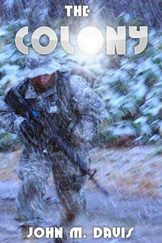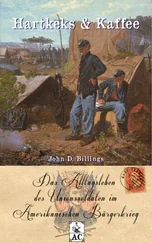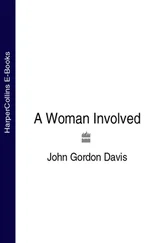He knows, he knows, and he wants to use me …
‘Not so?’ the colonel said.
Mahoney nodded, sick in his guts. ‘I suppose so.’
‘And,’ the colonel said, as another thought struck him, ‘we’re both involved in the law, hey? Your father’s a lawyer an’ you’re working on a law degree, I believe?’ He spread his hands reasonably. ‘We both know what the law is – about accomplices, for example. About accessories before, during, or after the fact?’
Mahoney’s ears were ringing. ‘Sure.’
Colonel Krombrink nodded absently. Letting the silence hang. Then, as if heaving himself out of a reverie, he sat up: ‘So we’ve got a lot in common, Mr Mahoney. So – why don’t we cooperate, hey, man?’
Mahoney had known it was coming but it was like a blow to his guts. He heard himself say: ‘Cooperate how?’
The colonel said earnestly: ‘Of course, being an honest South African citizen, an’ an educated man, an’ a responsible newspaperman, you would always cooperate with the police? I mean –’ he waved a hand – ‘if you knew your neighbour had murdered his wife, you’d report it to the police, wouldn’t you? That’s your civic duty, hey man. Isn’t it?’
‘Of course.’
‘Yes. Any crime.’ The colonel waved his hand. ‘And so I feel confident that you’ll cooperate with us now.’
Oh Jesus, Jesus … ‘Over what?’ He tried to sound puzzled.
The colonel sat back. ‘Well,’ he said, man to man, ‘it’s about those bladdy eggs that bladdy snake’s laid, hey? The problem is, this snake doesn’t lay its eggs in one place, hey, like a nice ordinary viper or mamba. It lays them all over the show. An’ those eggs aren’t all the same colour , hey man. No, Got , they’re not all black, they’re also white and different shades of brown, man. Which makes looking for them quite a job, hey?’
Mahoney looked at him, his heart knocking. The colonel put his fingertips together. ‘Well, you work with kaffirs, Mr Mahoney, and you must hear a lot of talk , hey man. A lot of …’ he waved a hand, ‘ stories. Information , about crime. Tip-offs. And –’ he stared with big reasonable eyes – ‘I’m sure that as a responsible citizen you will pass on such information to the police. Not so?’ He paused, then leant forward. ‘In fact, we’re relying on you to do that?’ He smiled.
Jesus, Mahoney feared and hated the bastard. He nodded. ‘Of course.’
The good colonel nodded. ‘Of course. Because anybody who didn’t do that might be described as an accomplice, hey man …’ He let that hang. ‘But you must also hear a lot of talk about this and that, which aren’t actual crimes, hey man? Rumours, even. Like who’s come back to town, maybe. Who knows who.’ He shrugged. ‘Who thinks what.’ He looked at Mahoney, then gave a wolfish smile. ‘And, of course, we want you to pass on all that too.’
Colonel Krombrink’s eyes had suddenly taken on a naked menace. And Mahoney wanted to shout, in anger and self-hate. Anger that this bastard was threatening him, bullying him into becoming an informer, self-hate that what he felt was gratitude , like he was meant to feel. Anger that he was being softened up by fear. Self-hate that he was so easily frightened – for Christ’s sake, if they knew he’d been using the cottage they’d have arrested him on sight! Self-hate that he felt prepared to agree to almost anything to save his skin.
‘Colonel Krombrink, you can r ely on me to report any crime, as any responsible journalist would do. But no journalist is allowed to disclose the source of information …’
The colonel slapped his knees and stood up.
‘And, of course, as a journalist, you know all about the law, which enables the police to detain any person for ninety days now, until they’re satisfied he’s given all the information at his disposal? But, hell , man –’ he slapped Mahoney on the shoulder – ‘forget about depressing things like that on such a successful day! Mr Mahoney?’ The colonel took him warmly by the hand. ‘You’re busy, an’ so am I. So will you now excuse me, hey?’
He was still shaking when they got back to town. But what else could he have said? He had stood up to the bastard as much as anybody would dare: they were trying to bully him into being an informer, but that didn’t mean they had something on him – if they knew about his criminal relationship with Patti they would have nailed him long ago; if they’d known he was using the cottage his feet wouldn’t have touched the ground this afternoon. But, Jesus, he was angry: at the system that gave them such power, at the laws that made him a criminal for being in love. And, by God yes, he was angry at himself for being afraid of the bastards. By God yes, he was afraid …
He stopped at the Rosebank Hotel. He hurried to the public telephone and feverishly dialled Patti’s number.
‘Gandhi Garments,’ she said. Mahoney closed his eyes in relief: she hadn’t been arrested.
‘May I speak to Mr Jackson, please?’
‘I’m afraid you have the wrong number.’
‘I’m so sorry.’ He hung up and looked at his watch. It was a long five minutes waiting for her to get to the public telephones in the Fox Street post office. He dialled the first number: engaged. He cursed and dialled the next box.
‘Hullo?’
He said: ‘Don’t go anywhere near the cottage. It’s been raided, I’ve just come from there. Got that?’
There was a stunned silence. Then: ‘Yes.’
‘Did you leave anything in the cottage that’s identifiable?’
Short pause. ‘Don’t think so.’
Thank God. ‘So we’ve got to do some fast thinking. And the only safe place to do it is Swaziland. Meet me there on Friday night. At the hotel. Okay?’
No hesitation. ‘Okay. But shouldn’t we make it tonight?’
‘No, they’re watching me, and going to Swaziland mid-week would be unusual. Just go about your normal business.’
He hurried back to the car. He drove feverishly back to the Drum offices. He sat down at his typewriter, put paper into the machine and threw open his notebook. He pressed his trembling fingers to his eyes.
It was six o’clock when he crossed the border into Swaziland, his heart knocking. But the beetle-browed Afrikaner constable showed no interest. And, oh, the relief of driving across into the hilly land of the Swazis where there was no apartheid … And, oh God, he didn’t want to live in that land back there anymore. It was dark when he wound up the dirt road to the Mountain Arms. He ordered dinner to be served in their room at eight o’clock. He got a beer and went to sit on the verandah to wait for her.
And he waited. And waited. By the time the dinner gong rang he knew she had been arrested at the border. When the dinner hour was half over he telephoned her apartment. No reply. And he could bear the suspense no longer: he got in his car to drive back towards the border in case she had broken down. And, oh, the relief when he saw headlights coming up the road and identified her car. He stopped. She pulled up alongside him. He flung open her door and clutched her tight.
They sat at the table in their room, the food untouched. Her face was gaunt.
‘Well? Did you know?’ he asked.
She took a deep, tense breath. She said to her wine glass: ‘And, are you? Going to be an informer?’
He stared at her. ‘God! Inform on you? Would I have told you what Krombrink said if I intended that?’
She sipped from her glass. ‘But if I was not involved? Would you inform on the ANC?’
Читать дальше












